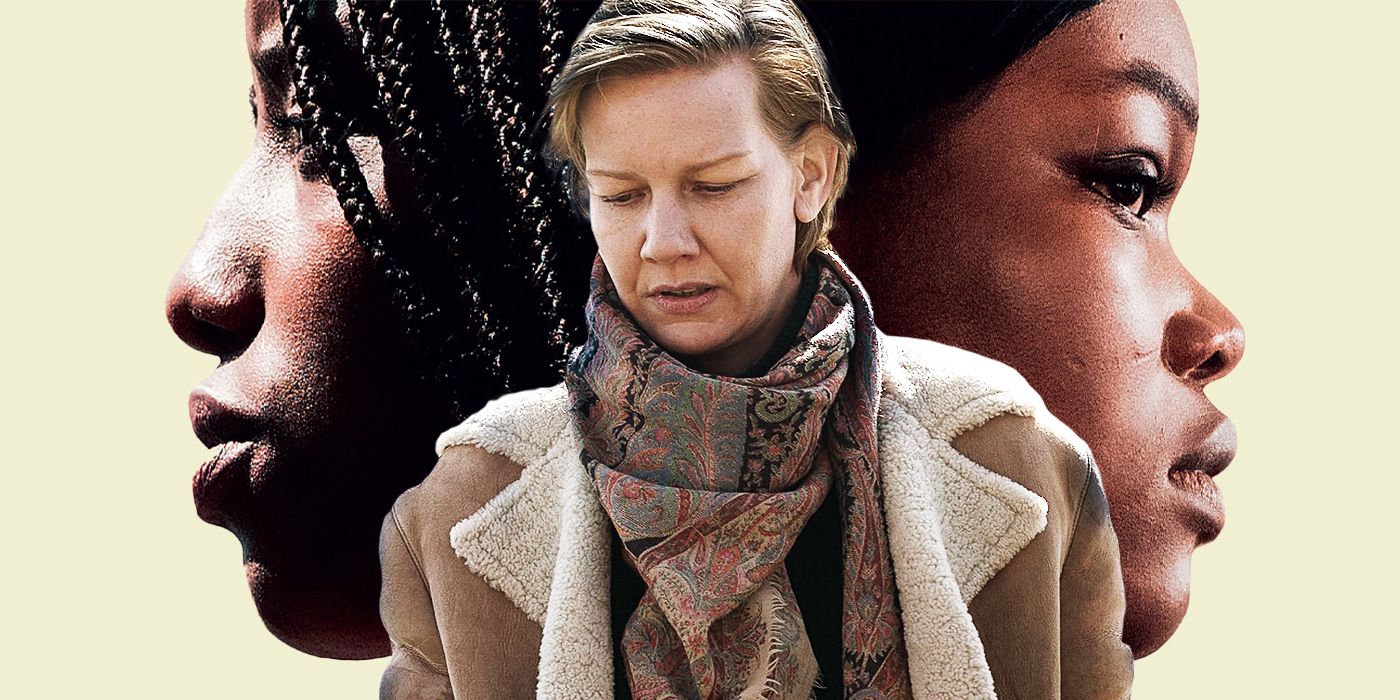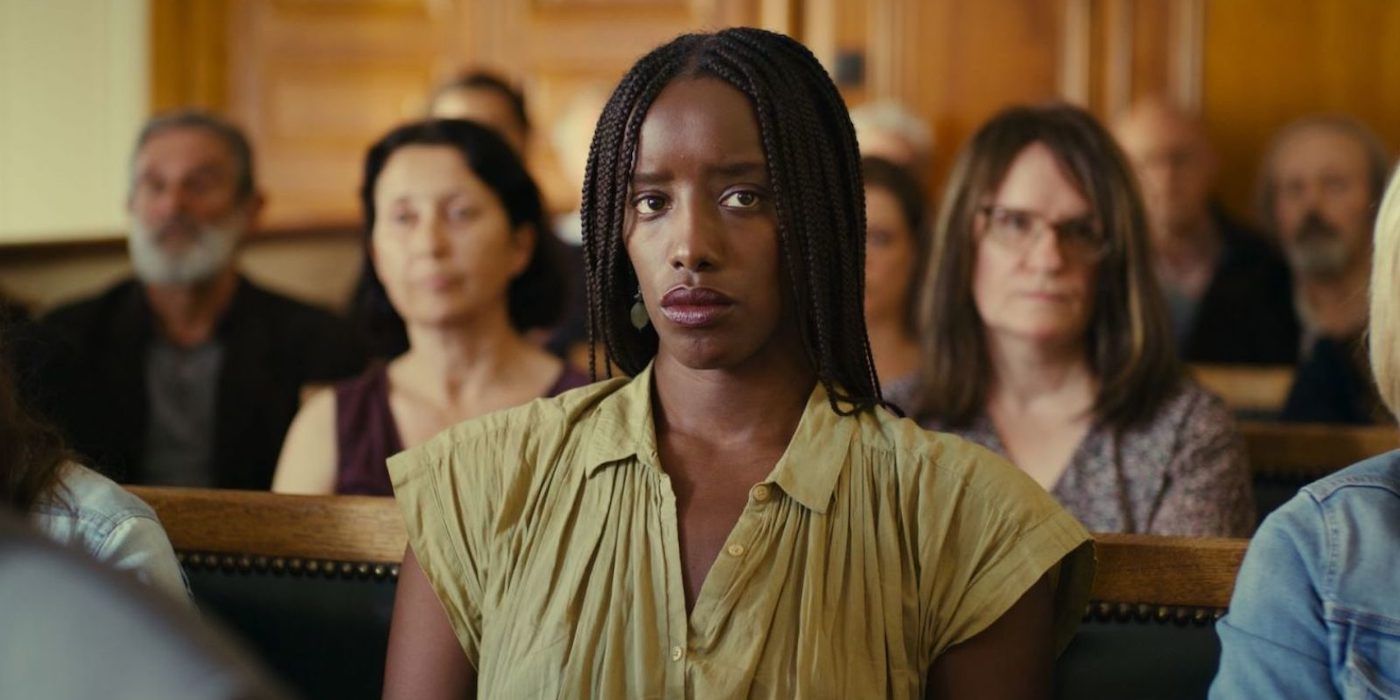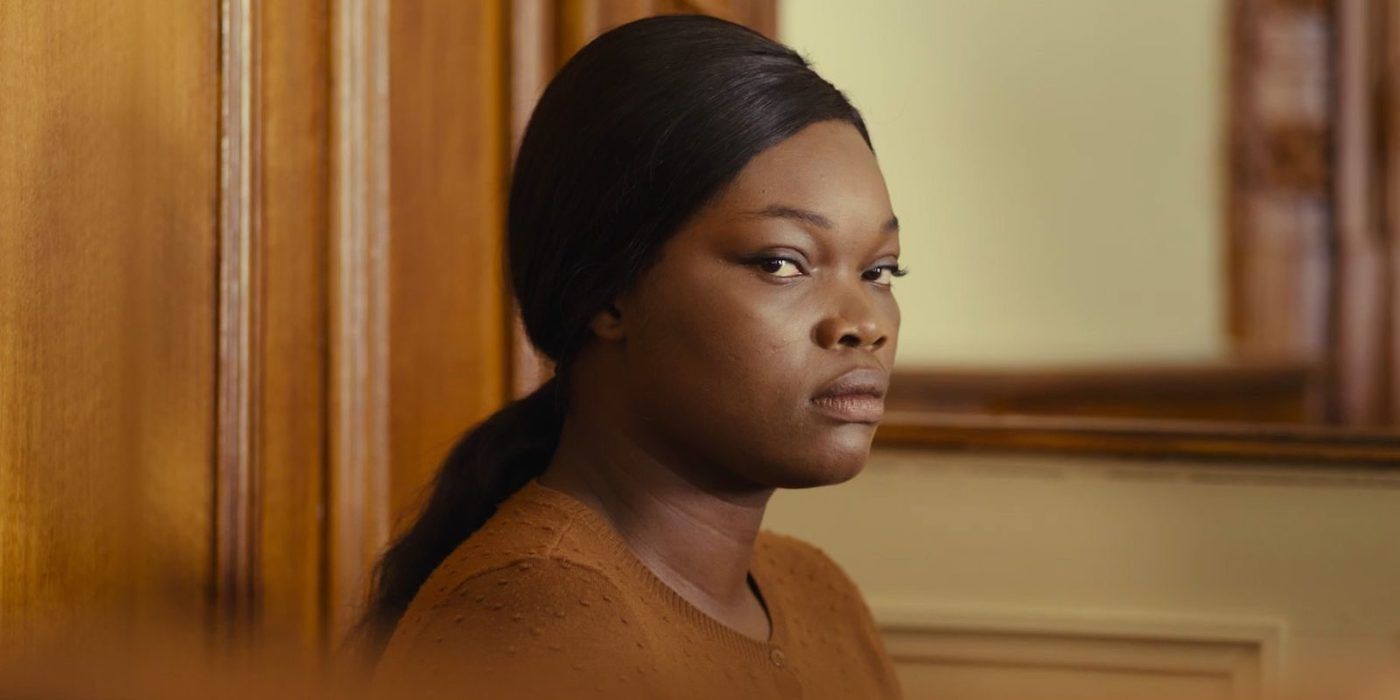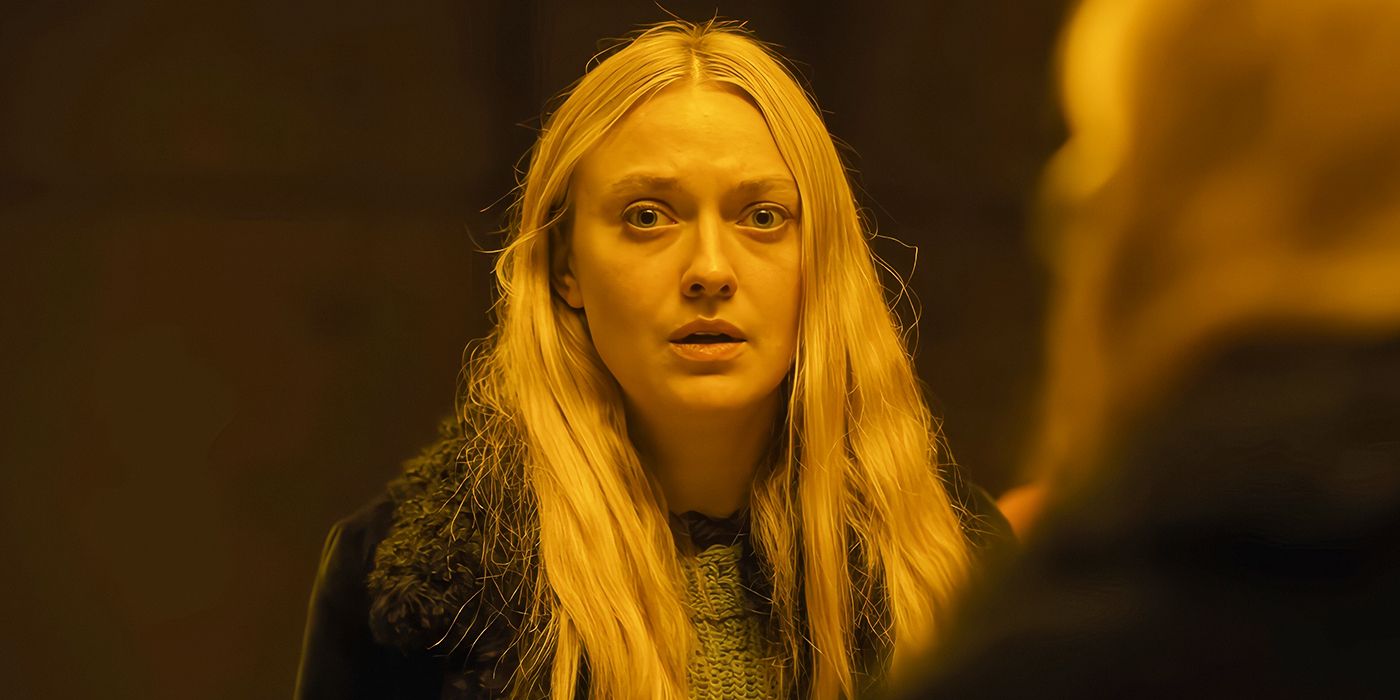The Big Picture
-
Saint Omer
is based on a real criminal trial and draws from the experience of director, Alice Diop, during the trial of Fabienne Kabou, reflecting themes of motherhood and personal relationships. - The protagonist, Rama, identifies with the defendant, Laurence Coly, and explores her own fears about motherhood, creating a connection that drives the story.
- The film presents Laurence as a perplexing defendant, leaving the audience questioning her true nature and circumstances, highlighting the complexities of her character.
Cannes Film Festival Palme d’Or winner, Anatomy of a Fall, which ultimately earned a total of five Academy Award nominations (including Best Picture), is a thought-provoking legal drama that doubles as a character study of a woman attempting to prove her innocence in her husband’s unexpected death. The film never answers the question on every viewer’s mind: did Sandra (Sandra Hüller) actually do it? Instead, Anatomy of a Fall examines how subjectivity and circumstantial evidence play a major role in reaching a verdict for a case with no witnesses or murder weapon.
Saint Omer, another recent French courtroom drama, takes a slightly different approach, though the two films share several similarities and make for a compelling double feature. Based on the trial of Fabienne Kabou, there’s never any doubt as to who committed the crime, but like Anatomy of a Fall, Saint Omer asks you to put yourself in the shoes of not only a juror, but the woman on trial, testing your sense of empathy while highlighting the complexities of motherhood.
Saint Omer
Follows Rama, a novelist who attends the trial of Laurence Coly at the Saint-Omer Criminal Court to use her story to write a modern-day adaptation of the ancient myth of Medea, but things don’t go as expected.
- Release Date
- November 23, 2022
- Director
- Alice Diop
- Cast
- Kayije Kagame , Guslagie Malanda , Valérie Dréville , Aurélia Petit
- Runtime
- 122 minutes
- Main Genre
- Drama
- Writers
- Alice Diop , Amrita David , Marie N’Diaye
‘Saint Omer’ Is Based on a Real Criminal Trial
Director, Alice Diop’s, first narrative feature is based on her own experience during the trial of Fabienne Kabou. Diop, whose family is from Senegal, saw Kabou’s photo in a newspaper and immediately recognized her to be Senegalese, as well. Upon learning about the crime, Diop became obsessed with the case and traveled to Saint-Omer, France to attend the trial. In 2016, Kabou was sentenced to 20 years in prison and mandated psychological treatment for the murder of her 15-month-old daughter. The trial of Laurence Coly (Guslagie Malanda) that lies at the center of Saint Omer draws directly from Kabou’s case and real court transcripts. Diop, like protagonist, Rama (Kayije Kagame), was also pregnant with her first child while attending Kabou’s trial, reflecting much of her own experience through Rama’s character.
In a 2022 interview with W Magazine, Diop explained how deeply the experience affected her, sharing that, “I wanted to find answers to my own intimate questions that I had asked myself about my relationship with my own mother and being a mother myself. And I decided that since I shared those same emotions with so many women, if we were all so obsessed with that event, it meant there was something universal in the story, which had to do with motherhood.” She also noted that most of the trial’s attendees were women, as were the journalists, judges, and lawyers, which the film calls attention to. Laurence’s testimony reveals her distant relationship with her mother, who is also in attendance. She admits that she and her mother spoke on the phone on a weekly basis, not because of their close relationship, but out of a sense of obligation. She never tells her mother—or anyone for that matter—about her pregnancy, isolating herself and even giving birth at home alone.
Rama’s Intense Connection to Laurence Coly Drives the Story in ‘Saint Omer’
Rama, an author and literature professor, travels to Saint-Omer to attend the trial with plans to base her next novel on Laurence’s case as a modern retelling of the story of the Greek mythological figure, Medea. In the process, she finds herself identifying with Laurence in a startling number of ways: both are Black, Senegalese French women in relationships with white men, burdened by strained relationships with their mothers. Rama, like Laurence, decides not to disclose her pregnancy to her mother at the beginning of the film, although she is just a few months along. While women make up the majority of the courtroom, Rama is noticeably the only Black person in the room aside from Laurence’s mother, who Rama later attempts to connect with.
Throughout her testimony, Laurence remains stony-faced, speaking in a calm, measured voice, betraying no emotion while others are testifying or when she’s questioned about her own contradictory statements. The first time that we see a real change in Laurence’s face is when she initially lays eyes on Rama a few days into the trial, offering her a small smile that hits Rama with a tidal wave of emotions.
Despite having no prior relationship with her, Rama can’t deny the kinship she feels with Laurence and how hearing her life story brings her greatest fears about motherhood to the surface. The fear of turning into one of your parents is a common one, and Saint Omer‘s well-placed flashbacks give us a glimpse into the cold, emotionally distant relationship Rama had with her mother during her childhood that she wants to avoid perpetuating with her own future child. Rama wonders if she too could be capable of such a heinous crime.
Laurence Coly Is a Perplexing Killer in ‘Saint Omer’
Like Sandra in Anatomy of a Fall, what makes Laurence such a perplexing defendant is how difficult it is to gauge the veracity of her testimony, thanks in no small part to Malanda’s expert performance. She contradicts herself often, responds “I don’t know” to some of the questions we most want to know the answers to, and attributes her hallucinations to curses placed on her by her family and the family of Luc Dumontet (Xavier Maly), the father of her child. As people from her life are called to the stand, we get a more well-rounded picture of Laurence, though it’s impossible to determine whose testimony aligns most with the truth.
Is Laurence a psychopath? A cold-hearted manipulator? Or just a marginalized young immigrant woman with no financial means taken advantage of by a man 30 years her senior? Defense Barrister Vaudenay (Aurélia Petit) opts for the last explanation in an impassioned speech to camera that leaves a lasting impression on every woman in the courtroom. Laurence is not simply a victim or a perpetrator, but a heartbreaking combination of the two, in need of mental health care rather than jail time. Saint Omer‘s endless complexity and ambiguous ending make it the perfect next watch for fans of Anatomy of a Fall looking for another gripping, female-led courtroom drama.
Saint Omer is available to watch on Amazon Prime in the U.S.
Watch on Amazon Prime






